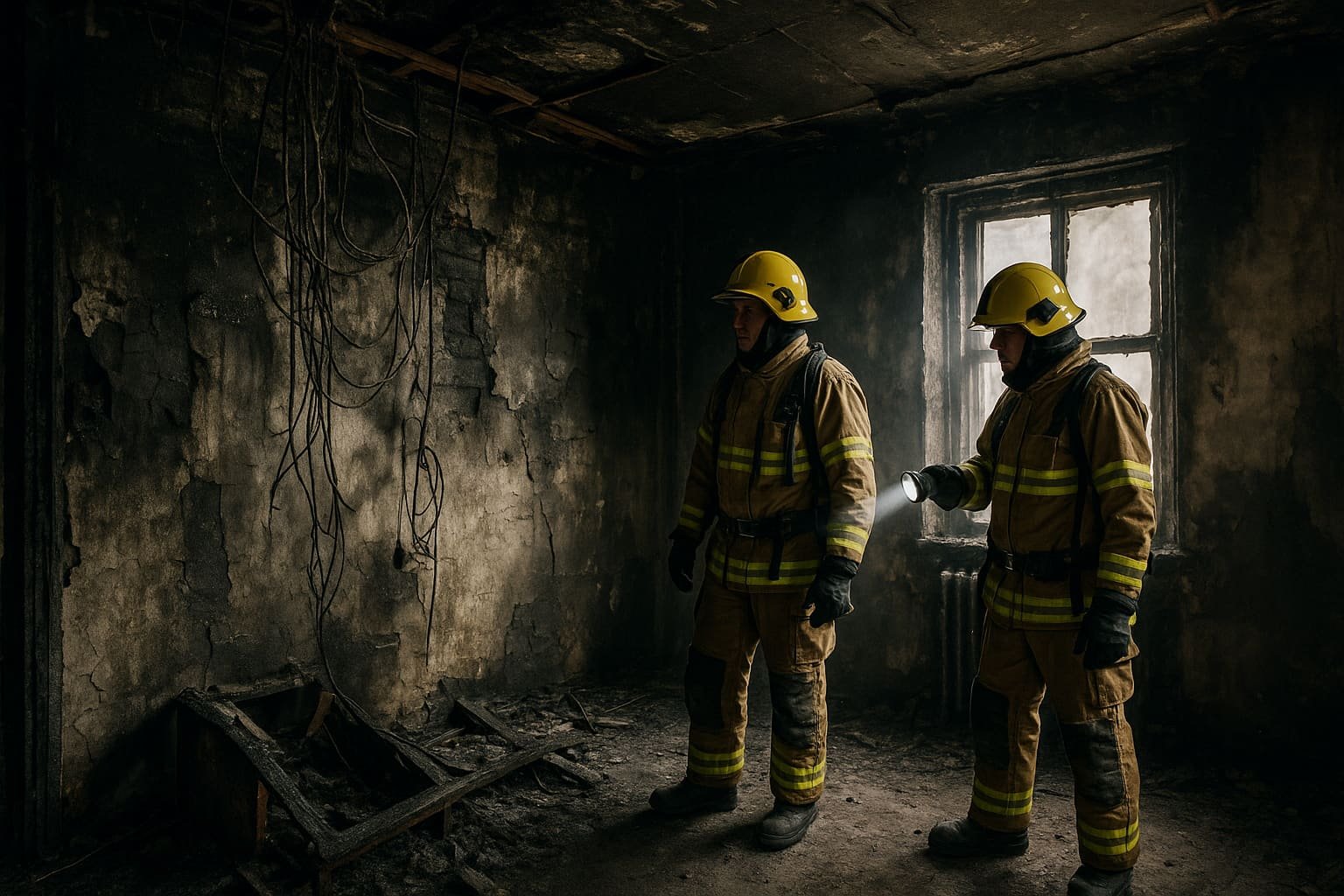Fire Hazards and Electrical Code Violations: A Dangerous Duo

Safe electrical systems are a fundamental part of any building, yet many property owners overlook the risks posed by fire hazards and code violations. Neglecting electrical safety standards can lead to disastrous outcomes, from property damage to life-threatening fires.
This blog post explores how fire hazards often intertwine with electrical code violations and what you—as a homeowner, property manager, or business owner—can do to mitigate these risks. By adhering to proper codes and proactively maintaining electrical systems, you can create a safer environment for everyone.
Why Electrical Code Compliance Matters
Electrical codes exist for one primary reason: safety. Established by organizations like the National Fire Protection Association (NFPA) and outlined in the National Electrical Code (NEC), these regulations set the standard for safe electrical system design, installation, and maintenance.
Failing to comply with these codes doesn’t just leave you vulnerable to fines or inspections. It actively endangers your property and the people living or working within it.
Common results of non-compliance include:
- Increased risk of electrical fires
- Higher chance of short circuits and power surges
- Expensive repairs or property damage
- Reduced insurance coverage or denied claims in case of fire
Understanding these risks underscores why code compliance is not only a legal obligation but also a moral responsibility.
The Link Between Fire Hazards and Code Violations
Fire hazards and electrical code violations are often interconnected, with one leading directly to the other. Here’s how they relate to one another and why addressing violations reduces the likelihood of fires.
Faulty Wiring
One of the most common sources of fire risk is faulty wiring, which can result from outdated materials or improper installation practices.
Common Code Violations:
- Improper wire gauge selection
- Lack of grounding conductors
- Outdated aluminum wiring without the proper connectors
Those violations pose a high fire risk because faulty or loose connections generate excessive heat, which can ignite surrounding materials.
Overloaded Circuits
Plugging too many appliances or devices into an electrical circuit is another frequent issue. Overloaded circuits can cause wiring to overheat and lead to electrical fires.
Common Code Violations:
- Installing insufficient circuit breakers for household loads
- Using power strips without circuit protection
- Exceeding amp ratings for outlets
By properly planning circuit loads and following NEC guidelines, these issues can be avoided entirely.
Unprotected Electrical Panels
An improperly installed or damaged electrical panel can compromise the entire electrical system of a building. Additionally, panels located in hazardous areas increase fire risks.
Common Code Violations:
- Obstructed or inaccessible electrical panels
- Using panels of inadequate size or capacity
- Neglecting necessary protective covers
Electrical panels should always be properly maintained, with open breaker slots securely covered and any signs of damage addressed immediately.
Use of Improper Materials
Electrical installations that feature substandard or incorrect materials are another ticking time bomb in terms of fire hazards. Improper insulation or the use of flammable materials amplifies risks significantly.
Common Code Violations:
- Non-compliant electrical enclosures
- Use of damaged or uncertified wires and outlets
- Combustible materials near electrical sources
Installing materials rated for fire resistance according to NEC standards ensures the long-term safety of your property.
How to Identify and Address Electrical Code Violations
Detecting and addressing electrical code violations before they lead to fire hazards is critical. Education and regular inspections can make a noticeable difference in improving safety.
Schedule Regular Inspections
A licensed electrician can evaluate the state of your electrical systems and compare them to the latest NEC standards. Inspections should be scheduled at least every five years for commercial properties and every 10 years for residential properties.
Look for Warning Signs
Indicators of potential dangers often include:
- Flickering or dimming lights
- Frequently tripped circuit breakers
- Discolored outlets or switches
- Burning smells near electrical components
If you notice any of these signs, take action immediately to prevent worsening damage.
Prioritize Preventative Maintenance
Keeping electrical systems functioning smoothly requires attention to detail and regular maintenance.
- Replace outdated wiring to meet modern safety standards.
- Ensure proper labeling of electrical panels and breakers.
- Install smoke detectors and fire alarms in areas with high electrical loads.
Work with Qualified Professionals
Never attempt to fix electrical issues yourself unless you’re properly trained and certified. Always hire licensed electricians who are familiar with local building codes to ensure compliance and reduce risks.
Fire Damage and the Hidden Costs of Non-Compliance
The consequences of ignoring electrical compliance go far beyond safety concerns. Businesses and property owners may face additional hidden costs, such as:
- Higher Insurance Premiums:
Non-compliance increases liability, often leading to higher premiums or policy cancellations.
- Inspection Penalties:
Government inspectors may levy fines or mandate expensive updates if violations are found.
- Loss of Assets:
When electrical fires occur due to negligence, the damage can often extend beyond repair.
The financial implications make it abundantly clear that compliance is a cost-saving and risk-reducing choice in the long run.
Taking Proactive Action for Safer Spaces
Electrical safety is non-negotiable in today’s world. By understanding the link between code violations and fire hazards, property owners and managers can take decisive action to keep their spaces safe.
Adhering to strict electrical codes ensures not only the wellbeing of those who live and work in your building but also the longevity of your property and assets. It’s a sound investment in both safety and peace of mind.
For more information on basic electrical safety or to schedule an inspection with a certified electrician, reach out to [Your Company Name]. Proactive measures today will ensure a safer tomorrow.